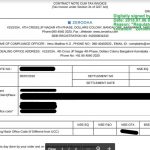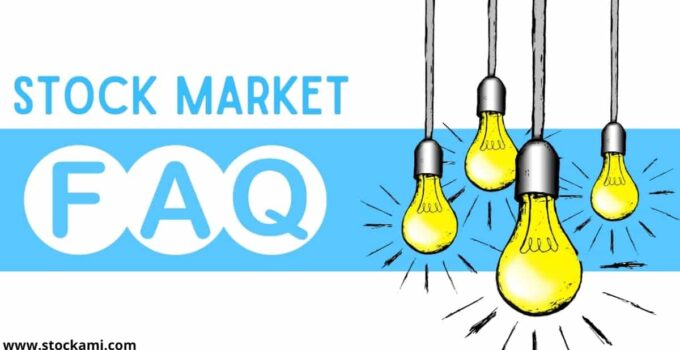Everyone who wants to work in the stock market or who wants to pursue a career in the Indian stock market has so query & Stock Market FAQ in his mind.
Most Common Stock Market FAQ
Let’s Start.
Investing in the market without knowing anything about the market can lead to huge financial losses. So we’ve compiled a list of common questions about the India stock market.
What is a Buyback? How to Start Trading in the Stock Market?
Why the Need for a Stock Broker?
According to SEBI regulations, only people registered for this can work in the stock market. This makes it possible to trade only through a registered broker.
What is Electronic Trading?

What is a Contract Note?

Every transaction you make is recorded on the exchange. The stock broker is obligated to give you a contract note for each transaction. This agreement notice states the price, time, number, broker’s name and brokerage of the trade you have made. You will receive a contract note of this agreement from your respective broker in a registered e-mail within 24 hours.
Note: Contact notes are very useful for checking your transactions.
What is Book-Closure and Record Date?
What is the Difference Between a Record Date and a Book Closure Date?
The company does not close its register in case of record date. This date is counted as the last date to find out how many people in the company are claiming the right. In case of book closure, shares which cannot be sold in the market have transfer deed prior to book closure.
What is a No Delivery Period?
When a company advertises a book closure, the exchange sets a no-delivery period for it. Only trading is allowed during this period. Also, the settlement of this trade takes place only after the expiry of the no-delivery period. This is where the company that is entitled to the declared benefits can be excluded.
What is X-Dividend?
Once a company declares a dividend its call ‘ex-dividend’. Benefits of dividend will get to those investors has company shares before ex-dividend. As a result, the buyer of the shares does not get the benefit of the dividend paid earlier.
What is X-Date?
The first day of no-delivery is called the X-date. The company fixed book closure and record dates for bonuses, rights and dividends. So those who buy shares on or after this date are not entitled to take advantage of it.
What is a Bonus?
What is a Split?
This is a book entry in which the face value of the shares is increased instead of the outstanding shares. If the company splits two-way, it means that shares with a face value of Rs 10 to Rs 5. With face value. And those who had 1 share now have 2 shares.
What is a Buyback?
As the name suggests, this is an option that allows the company to buy its own shares back from investors. Company can do this in different ways like buy a small number of shares from the investor or can buy from open market through tender offer. Also company can buy by book building method from stock exchange or from odd lot.
What is a Settlement Cycle?
What is a Rolling Settlement?
Rolling settlement determines the trading price of each day and settles on a certain day during the settlement period. Currently exchanges follows T+2′ rolling settlement cycle. T stands for trading day & 2 stands for another two working days.
What is Short Selling?
What is Bad Delivery?
SEBI has laid down uniform rules for delivery of shares. Bad delivery means that the shares certificate may be torn, damaged, tampered with, the name of the company may have been mistaken, etc. Bad delivery is only possible when it is in physical form. There is no possibility of bad delivery in demat.
How are Physical Shares Transferred?
Once the shares has been sold, it means that the shares have to be duly filled, signed and attached to the deed with the stamp and sent to the company in the name of the buyer. Once a new name is entered in the Shares Transfer Register, the transfer process is said to be completed.
Take a Look




